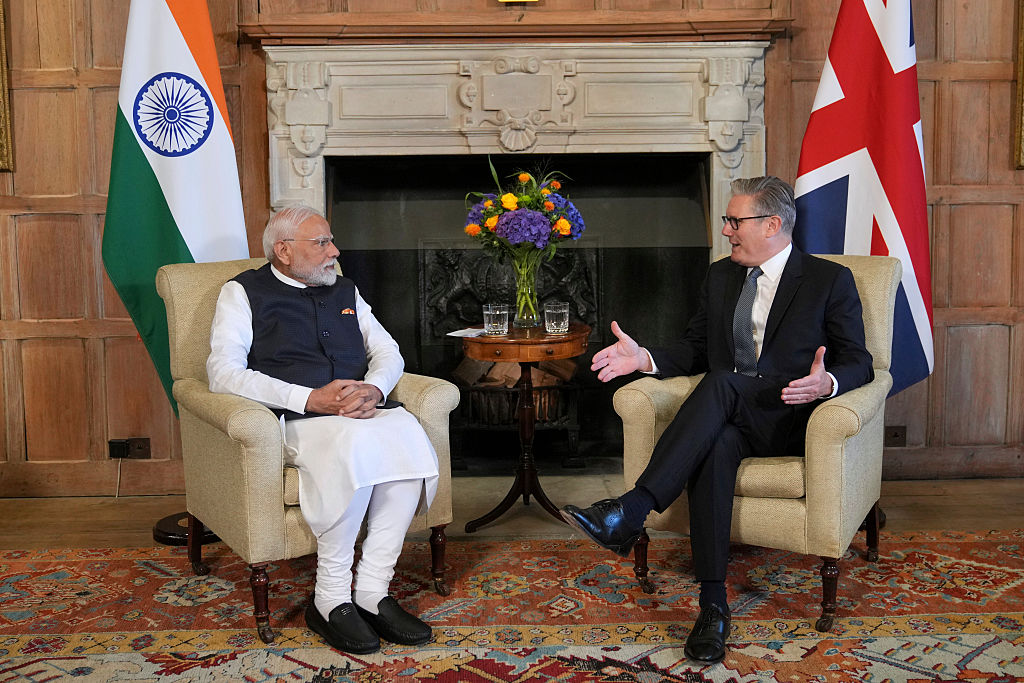India and the United Kingdom on Thursday signed a landmark Comprehensive Economic and Trade Agreement (CETA), aimed at enhancing access to goods and services between the two countries. The agreement, signed in the presence of Prime Minister Narendra Modi and UK Prime Minister Keir Starmer, ensures comprehensive market access for goods across most sectors, fully addressing India’s export interests.
India stands to benefit from the duty elimination of tariffs on approximately 99% of tariff lines, covering nearly 100% of the trade value. This opens up significant opportunities to boost bilateral trade between India and the UK.
In key labour-intensive sectors, duties have been reduced to zero from previously high levels — up to 20% on marine products, 12% on textiles and clothing, 8% on chemicals, and 10% on base metals. Notably, in the processed food sector, tariffs on 99.7% of lines have been slashed from as high as 70% to zero, offering a major boost for Indian exporters.
The India–UK CETA offers a transformative opportunity for business across key sectors such as agriculture, food processing, chemicals, pharmaceuticals, textiles, engineering goods, electronics, and marine. By opening access to the UK’s import market, the CETA reduces compliance costs and time-to-market, enhancing competitiveness for Indian exporters.
Agriculture and allied sectors stand out as a major beneficiary, with Indian farmers gaining market access for high-value products like vegetables, fruits, basmati rice, cereals, animal products, beverages, oil seeds, and dairy. This directly supports India’s ambitious goal of achieving USD 100 billion in agri exports by 2030.
Importantly, the FTA also puts in place protections to ensure that Technical Barriers to Trade (TBT) and Sanitary and Phytosanitary (SPS) measures do not lead to unjustified trade restrictions.
Additionally, the marine sector, particularly Indian fishermen, will benefit from access to a UK market valued at over USD 5.4 billion. By improving predictability, reducing trade risks, and promoting digital transformation and cross-border innovation, the FTA builds lasting commercial trust and marks a significant milestone in deepening Indo-UK economic cooperation.
MSMEs are poised for a strong uplift through duty-free access in labour-intensive sectors such as leather, textiles, gems and jewellery, furniture, and sports goods—areas where UK imports exceed USD 23 billion. The FTA further enhances their global competitiveness through bilateral cooperation in trade finance, training, partner identification, and transparent payment practices.
India’s MSMEs—from family-owned weaving units and apparel manufacturers in Tirupur to artisanal clusters in Panipat, Bhadohi, and Agra—form the backbone of India’s textile and leather exports. The FTA opens duty-free access for these sectors—leveling the playing field for Indian exporters against competitors like Bangladesh, Pakistan, and Cambodia.
There exists a significant potential in the chemicals and pharmaceuticals sector. Indian manufacturers will be able to expand their footprint in the UK, driving growth in both bulk and specialty chemicals, as well as high-quality, affordable generics and innovative pharma products. This strategic opening will not only boost exports but also foster deeper R&D collaboration, making India a key partner in strengthening the UK’s healthcare and industrial value chains.














